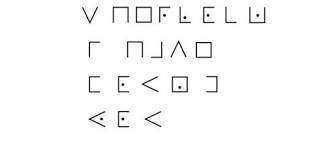
Reference Codes

Reference codes are an old concept. They are often used in the relational database schema definition as enumeration values. The database specialists often call them lookup tables.
Reference codes are dynamic enumeration values. By dynamic, we mean you can add values without recompiling the source code.
In modern DevOps environments where deployment of a new version is performed in minutes, this advantage is somewhat shallow. We view reference codes more as strongly typed and efficient tags.
How can you easily add the concept of reference codes in your application? We provide an initial setup approach requiring mere minutes to add codes to your application.
Enumerations as Codes
As a professional designer, you have declared sets of fixed values as enumeration in your source code. Now you can extend your enumeration classes with the code interface.
Additional information is available under the link:../../../docs/bus/businessmodels/ Below the source code in modern Java is
public interface Code {
int id();
String code();
boolean isEnabled();
}
public enum EnumCode implements Code {
CODE_TEST_1, CODE_TEST_2, CODE_TEST_3, CODE_TEST_4, CODE_TEST_5(false);
private final boolean enabled;
EnumCode() { this(true); }
EnumCode(boolean enabled) { this.enabled = enabled; }
@Override
public int id() { return this.ordinal(); }
@Override
public String code() { return this.toString(); }
@Override
public boolean isEnabled() { return this.enabled; }
}The above approach is a low-impact transformation of your application. Once your enumeration types implement the code interface, you are free to migrate selected types to external persistent and extensible solutions.
Persistent Codes
Codes can be defined and stored as JSON sets or in SQL table.
The Java code for the JSON approach is
/**
* Utility method to read all code values from a JSON file using the org.json library.
*
* @param clazz class of the reference code
* @param factory placeholder to pass the class constructor as lambda expression
* @param path path to the JSON file containing the code values
* @param <T> class of the reference code
* @return code type and all its values
* @throws IOException if a file access error occurred
*/
public static <T extends Code> CodeType<T> build(Class<T> clazz, CodeFactory<T> factory, Path path) throws IOException {
try (Reader reader = Files.newBufferedReader(path, StandardCharsets.UTF_8)) {
Iterator<Object> iter = new JSONArray(new JSONTokener(reader)).iterator();
List<T> codes = new ArrayList<>();
while (iter.hasNext()) {
JSONObject value = (JSONObject) iter.next();
T code = factory.create(value.getInt("id"), value.getString("code"),
value.getBoolean("enabled"));
codes.add(code);
}
return CodeType.of(clazz, codes);
}
}The JSON files containing the code values can be stored as resource files and delivered either with the application or in a separate jar file.
The Java code for the SQL table is quite similar:
/**
* Utility method to read all code values from a relational database table using Java regular API.
*
* @param clazz class of the reference code
* @param factory placeholder to pass the class constructor as lambda expression
* @param dataSource data source to the database to read from
* @param tableName name of the table containing the code values
* @param <T> class of the reference code
* @return code type and all its values
* @throws SQLException if a database access error occurred */
public static <T extends Code> CodeType<T> build(Class<T> clazz, CodeFactory<T> factory, DataSource dataSource, String tableName) throws SQLException {
final String SQL_QUERY = "SELECT id, code, enabled FROM " + tableName;
try (Connection connection = dataSource.getConnection(); Statement statement = connection.createStatement();
ResultSet resultSet = statement.executeQuery(SQL_QUERY)) {
List<T> codes = new ArrayList<>();
while (resultSet.next()) {
T code = factory.create(resultSet.getInt("id"), resultSet.getString("code"), resultSet.getBoolean("enabled")); codes.add(code);
} return CodeType.of(clazz, codes);
}
}At the database level, you can define integrity rules in the schema to increase data quality.
Design
You have the freedom to model a set of values as enumeration, reference codes, or tags. Each approach has specific advantages and tradeoffs. The costs of moving from one approach to another are quite small. Choose one solution, implement it, and track its adequacy and user acceptance.
We provide a Java library BUS implementing these constructs. More information is available under Open Source Components.
The unit tests contain examples for enumeration codes, JSON codes, and SQL database stored codes.
Related concepts are discussed in our blog series
-
Entities, Identifiers, External identifiers and Names Marcel Baumann. 2020.
-
The power of Tags and Comments Marcel Baumann. 2020.
-
Reference Codes Marcel Baumann. 2020.
-
Value Objects as Embedded Entities Marcel Baumann. 2021.
-
Meaningful Identifiers Marcel Baumann. 2021.